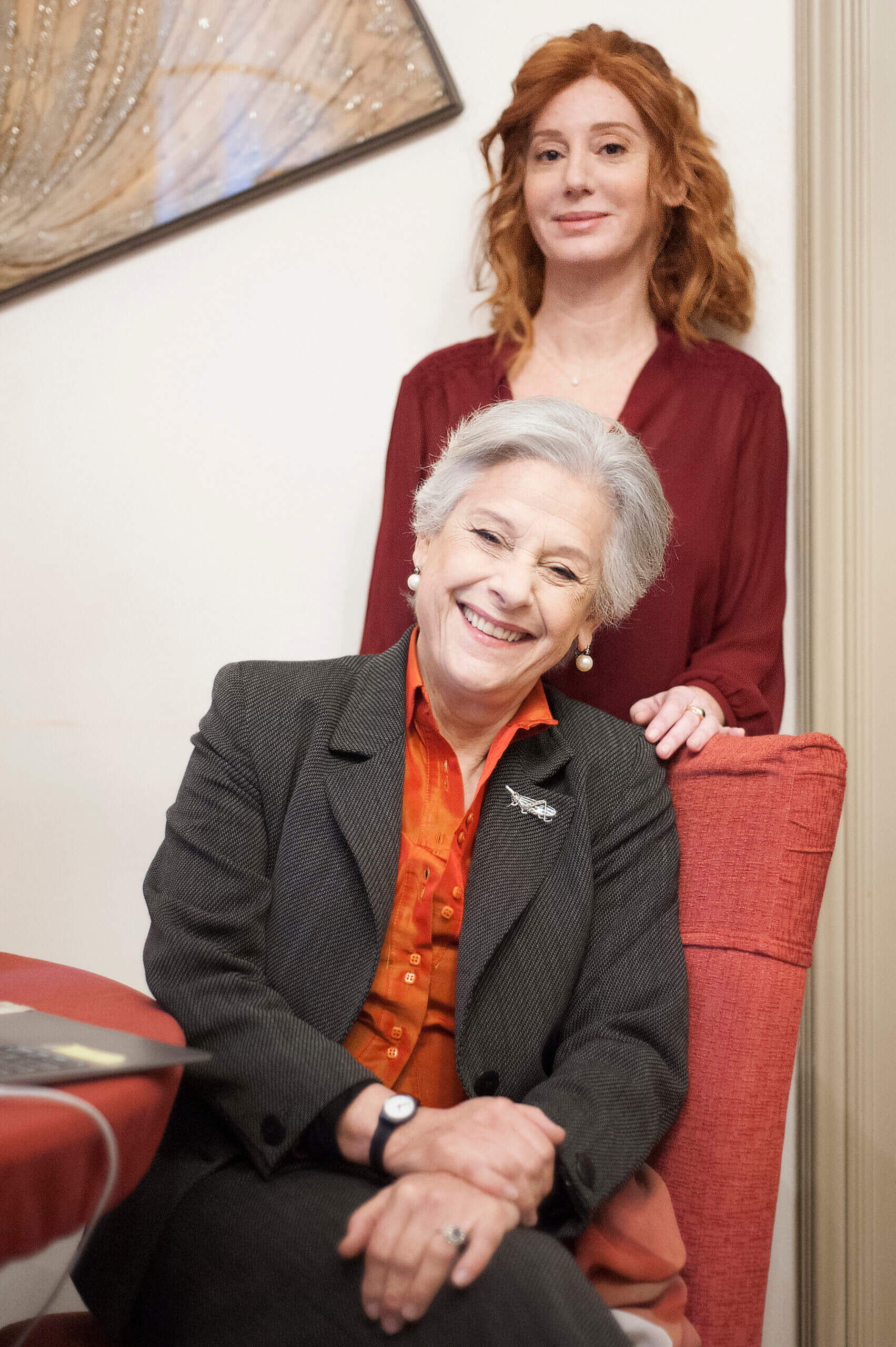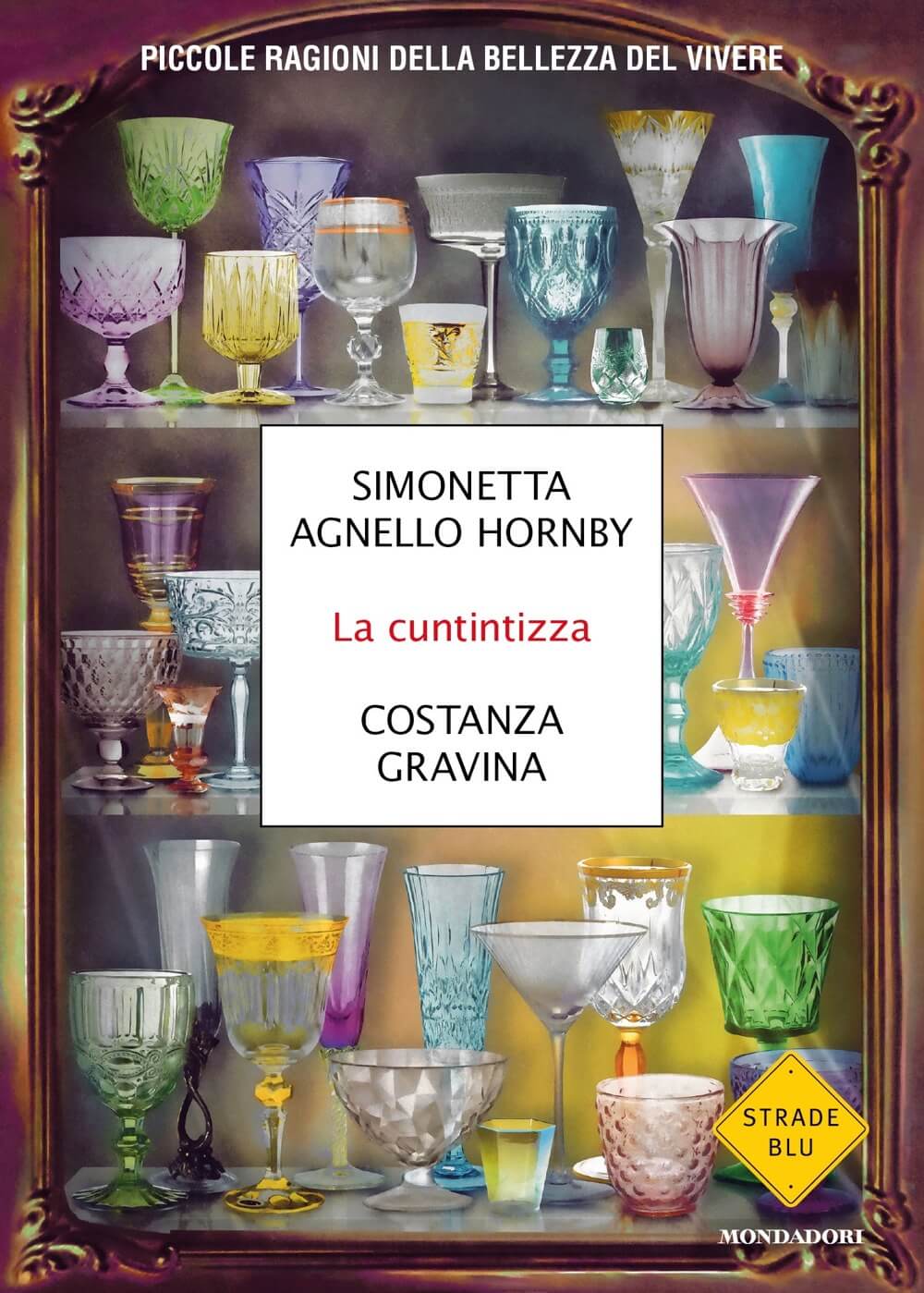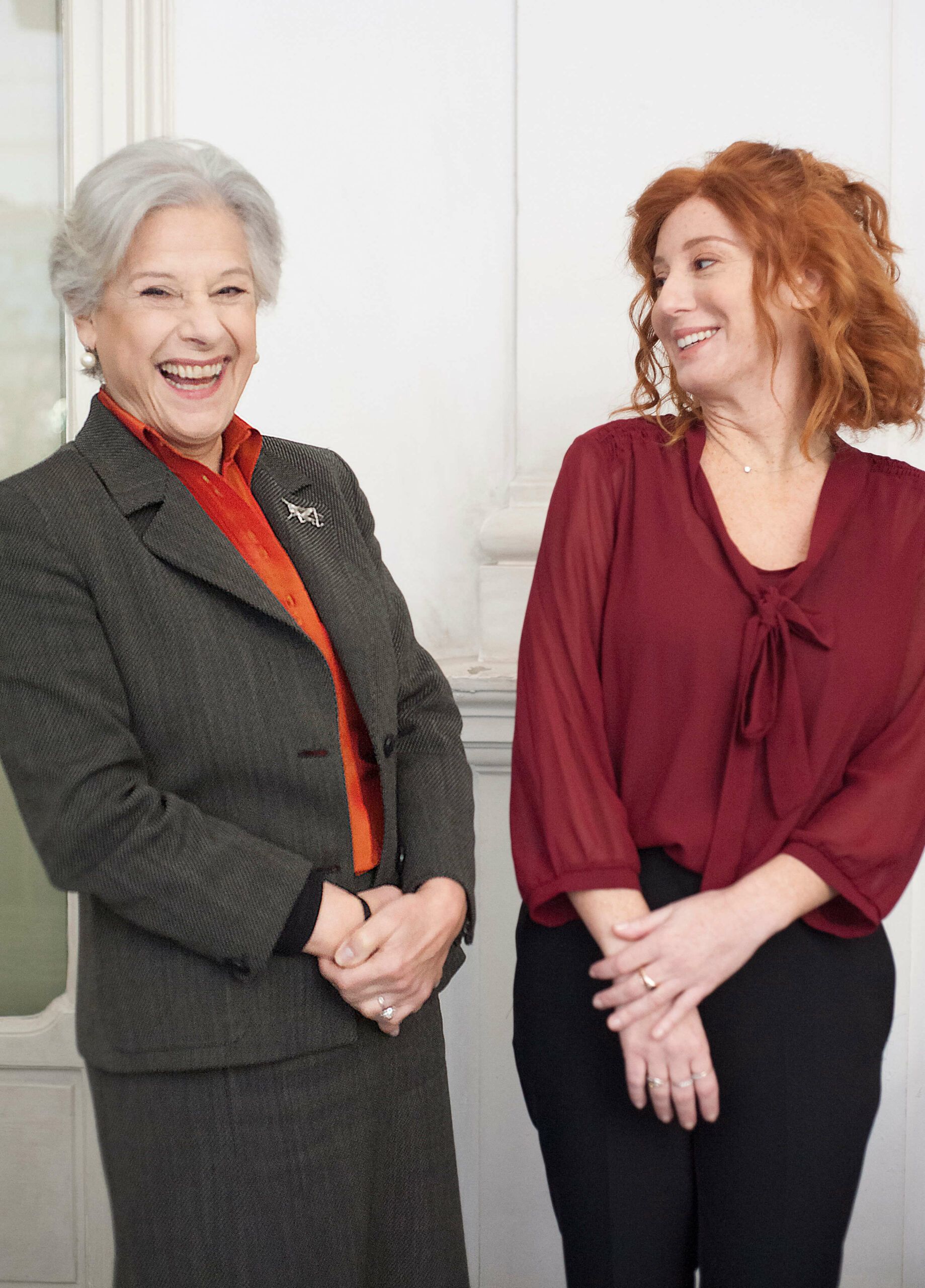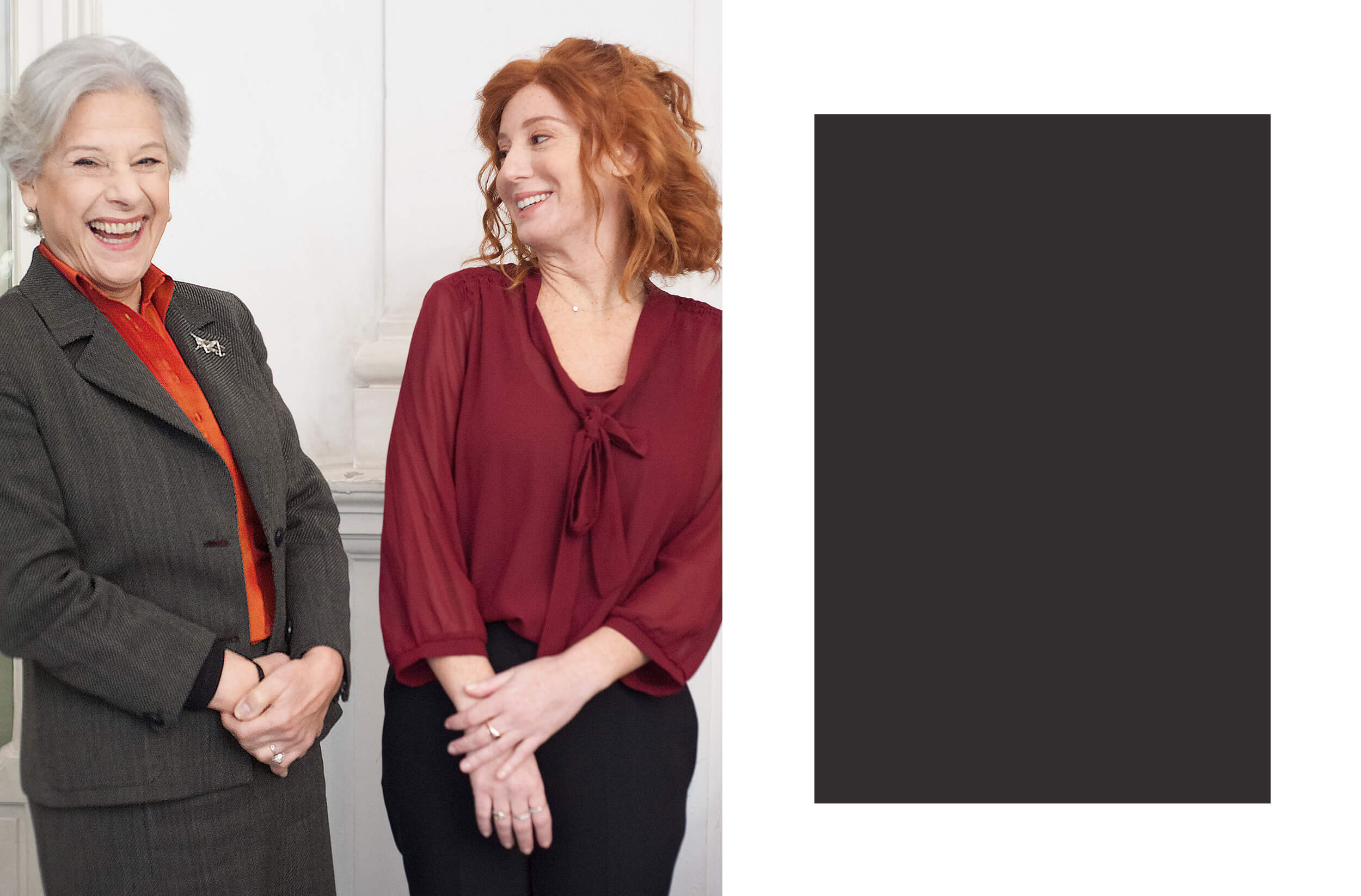There is happiness, and then there is “cuntintizza”.
While the first one overwhelms you, the second gently cradles you and brings you back to rediscover and find again, above all, the beauty in everyday things, which are simple but quiet, never boring. Cuntintizza is associated with the flavors of cooking, childhood memories, and family; it is a calm feeling, which grows in moderation but on which we can always count in the future as a refugee, to take shelter in that feeling of security and sweetness that characterizes it. Cuntintizza is the protagonist of Simonetta Agnello Hornby‘s latest book, written in collaboration with her niece, Costanza Gravina, at her first writing experience.
If you’ve had the opportunity to read Simonetta’s books, you should already know that Sicily is the setting for most of her stories, stories that, moreover, originate or refer to her family, in particular to the strong women who, from generation to generation, have been able to convey something to posterity, Simonetta and Costanza included. Right from the walls of their household, and of the kitchen, in particular, the two authors take us on a journey that wants us to rediscover the value of simplicity. Between knowing how to exploit the fabric to make caps for laundry piles and the importance of water and laurel, Simonetta Agnello Hornby talks about cuntintizza between past, present, and future, between Palermo and London, between hope and awareness.
Let’s talk about “cuntintizza”, which is what in Sicilian slang means “contentment,” those small, yet considerable pleasures in life, that thing that’s “enough,” rich in meaning and memories. What’s the first memory you associate with “cuntintizza”? And how has your approach to this concept changed over time?
I associate the term “cuntintizza” with a dazzling smile, I always have and I always will. It’s that feeling for which you could even not speak, but you can’t but smile.
While writing this book, how have your and your nephew and co-author’s views of contentment combined and how has this contact influenced each other’s writing?
My nephew, Costanza, had never written a book before, so she was very insecure, and she still is. Over the phone, we would often talk about the meaning of “cuntintizza,” and she expresses her contentment in a very good way, so I started from there, from her contentment, to get her to speak. So, she speaks for the contentment of cooking, of her dad teaching her to cook, the smells, and the touch, which are things that I’ve experienced myself. For me, as a kid, my big contentment would be entering the kitchen, smelling things, and sitting down there with my dad telling me about Constantinople… All my senses would be stimulated, and that was also my contentment. I keep believing in contentment: even on your own, you should learn how to create a contentment situation.
The premises of the book are about everyday happiness, although the book immediately puts us in front of a reality that seems to have lost touch with the concepts of humanity, empathy, and simpleness, due to the pandemic and ongoing war…
I believe that, for the soldiers in war, the memory of their lover can be a source of contentment. Because it’s nothing like happiness: the contentment is a state of mind, while happiness is like bursting inside. For example, if you feel contentment, you can still do your job, while you can’t if you feel happy because in that case, you’re too upset. Contentment is more domestic and tamed.
Happiness is a totalizing and brief emotion.
Exactly, happiness is a flash, contentment is a sea. For example, for me, embroidering and mending are sources of constant contentment. I love mending because when you mend, you keep things alive, you close the holes, and it’s an action that’s totally under your control, no one asks you to do it, it’s an act of respect towards nature.
Let me tell you a story of contentment. A friend of my mother once fell in love with a young man who was socially superior, richer; the mother of this potential husband invited her over to her place to get an idea of what kind of daughter-in-law she would have been. Once together, she asked her: “When you go to the tailor because your coat is worn out, what do you do? Do you ask them to reverse it?” (in the past, coats could be reversed from the inside out), and she said yes; “And then, when it gets more worn out, what do you do?” asked the potential mother-in-law, and she answered, “I might make a jacket out of it,” “And what do you do with the lower part?”, “If I have a daughter, I could have a tiny coat made for her,” “And when this gets ruined, what do you do?”, “I could have it cut into pieces to make potholders, “And when these get ruined, too?”, “Well, I’d throw them away!”, to which the mother-in-law said, in Sicilian dialect, “Eh, wrong answer! You should have patches for laundry basins made out of them.” So, in the end, the mother-in-law decided that the woman was a spendthrift! [laughs] So, contentment belongs to those who choose not to destroy fabric until it becomes patches for laundry use.

“The contentment is a state of mind, while happiness is like bursting inside. For example, if you feel contentment, you can still do your job, while you can’t if you feel happy because in that case, you’re too upset. Contentment is more domestic and tamed.”
You said that contentment can be found in the kitchen, first and foremost. What’s a recipe that still recalls this concept?
I love what in Sicily we call “uovo arriminato”, which is scrambled eggs. Although they’re not what you think scrambled eggs are in northern Italy, as “uovo arriminato” is not a harassed egg, and this is a huge difference between northern and southern Italy! [laughs]
“From that moment on, I stopped dreaming of being a man. It wasn’t worth it”: this statement also recalls the strong women from your books and family. Anyway, considering your emancipation path, how hard do you think it is to reach that awareness today?
In my Sicily, the difference between men and women is huge. In Italy, I think it’s hard to find a society where these differences don’t exist: in my homeplace, many people think that it’s better to be men because you get more job opportunities, you earn more money. It’s a shame. Even today, women are considered less than zero in the workplace. I hope this is different for you, here, but I actually believe it’s not. I’ve experienced it firsthand, in England, and I’ve witnessed many other cases. For example, the fact that a woman, when she’s pregnant, can’t work, when she breastfeeds, can’t work, it’s something that pushes men to consider us inadequate to work.
If you could offer a glass of water with laurel to “help forgive and forget other people’s misfits,” whom would you offer it?
Someone who needs to forgive. To some person whom I know who should be forgiving. The reason behind the concept of forgiveness in my situation in that story is that I had to keep living and working with those people, so I had to forgive because otherwise there would have been resentment, and bad relationships. Generally speaking, I think that if you work or live with other people, you need to forgive and forget. This thing about water with laurel is very important. However, the fact that you forgive someone, doesn’t mean that then everything goes back to as it was before. Earlier today, a lady told me about a friend of hers who’d made a scene for a reason that I believe wasn’t fair, and she’s forgiven her drinking, and she told me: “She’s forgiven, but we’re not friends.” So, forgiveness doesn’t mean reconnecting, it just means not feeling resentment.
Is this also true for self-forgiveness?
In that case, we’d drink liters and liters of water with laurel, directly from the comfort of the toilet seat! [laughs]
“I think that if you work or live with other people, you need to forgive and forget. This thing about water with laurel is very important. However, the fact that you forgive someone, doesn’t mean that then everything goes back to as it was before.”

Contentment and happiness: where is the border, in your opinion, and what’s the biggest enemy that prevents you from fully experiencing these feelings?
The enemy of contentment and the enemy of happiness are different from one another: there might be someone who’s against both of them, but someone who’s against contentment is often not fully against someone else’s contentment, as it’s something so personal, hidden. Happiness, on the other hand, is something you show off with a smile, you can see it, it’s so brief, it’s a flash, it makes you share the reason why you’re smiling, while contentment is continuous, ready to wake up when it’s a bit sleepy. As a consequence, the enemies of contentment are violent, of course, because they’re jealous, and I think they’d be as violent against happiness, as well. If you can find happiness or contentment, obviously.
In which way writing this book has been an act of contentment? With what do you associate, right now, the exteriorization of this state of mind?
I associate it with the real cases of contentment, the things that bring me joy. Right now, I could look at this beautiful inside garden and feel content, or I could not feel it, and if I’m on “contentment mode,” like computers, I would notice it more, or if I go out and see the sun, and if I’m in a good mood, I feel more content, and it’s a very personal state of mind. Contentment also means meditating, if I feel it, it means that I’m ready to have it in me. If I get drunk and wake up drunk, I can’t find contentment anywhere. Which doesn’t mean I often get drunk, though… [laughs]
Between London and Palermo, reaching beyond the concept of boundaries, what’s your happy place?
I have no happy place… England is an island that achieved its independence, where today I’m not a slave, I’m not a subject, and that’s nice. Sicily has always been subject to foreigners, and it hurts. For example, I’m thinking of my mother, who was a wealthy woman, and in spite of this, when I saw her setting the table with our “best tablecloth,” she said: “Today, we’re using this tablecloth because foreign guests are coming.” This inferiority complex, this need to make a good impression on people coming from abroad who’s better than us, would be innate. Later on, thinking about it, my mom started using the same tablecloth for every occasion, however, the point is not the fact that we want to make a good impression, as in that case it would be vanity, but the need to worship people coming from abroad, and this is what would hurt me.
What’s the book on your nightstand, right now?
Over the last period, I’ve maturated this huge passion for Catullus. He’s wonderful, I love him.
Do your future plans include a new literary collab with your nephew?
Sure! Besides the fact that I like writing books with other people, Costanza is my nephew, I’ve loved her ever since I was a little girl, and writing this book was good for her, it made her grow up, opened a new world to her, and I’m glad about it.

Thanks to Mondadori.





